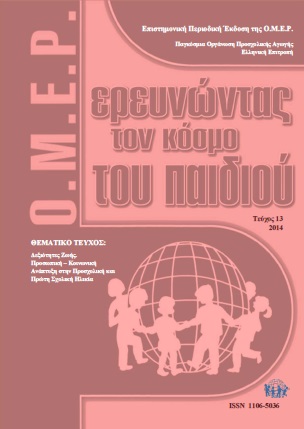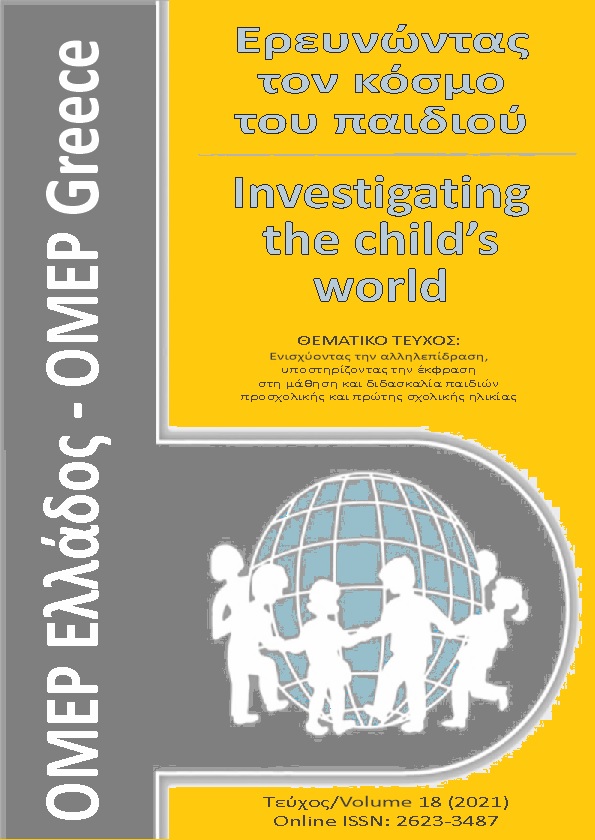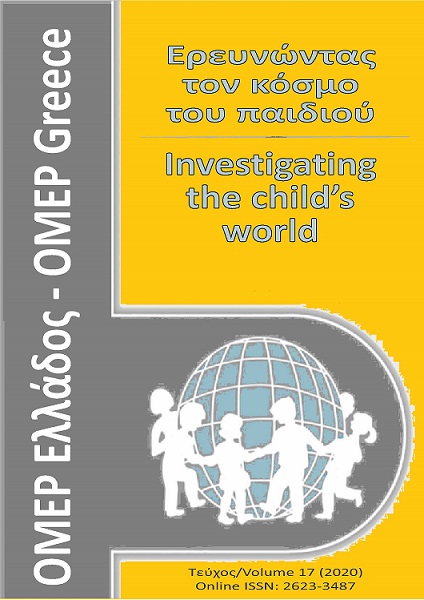Ο ΡΟΛΟΣ ΤΩΝ ΚΙΝΗΤΡΩΝ ΓΙΑ ΑΝΑΓΝΩΣΗ ΣΤΗΝ ΕΝΙΣΧΥΣΗ ΤΟΥ ΠΡΩΤΟΥ ΓΡΑΜΜΑΤΙΣΜΟΥ: ΣΧΕΔΙΑΣΜΟΣ ΕΝΟΣ ΕΡΓΑΛΕΙΟΥ ΓΙΑ ΤΗΝ ΑΠΟΤΙΜΗΣΗ ΤΟΥΣ
Abstract
Article Details
- Come citare
-
Αντωνοπούλου (Eirini Antonopoulou) Ε., & Στελλάκης Ν. (2014). Ο ΡΟΛΟΣ ΤΩΝ ΚΙΝΗΤΡΩΝ ΓΙΑ ΑΝΑΓΝΩΣΗ ΣΤΗΝ ΕΝΙΣΧΥΣΗ ΤΟΥ ΠΡΩΤΟΥ ΓΡΑΜΜΑΤΙΣΜΟΥ: ΣΧΕΔΙΑΣΜΟΣ ΕΝΟΣ ΕΡΓΑΛΕΙΟΥ ΓΙΑ ΤΗΝ ΑΠΟΤΙΜΗΣΗ ΤΟΥΣ. Ερευνώντας τον κόσμο του παιδιού, 13, 24–35. https://doi.org/10.12681/icw.17913
- Sezione
- Επιστημονική αρθρογραφία & εκπαιδευτικές δράσεις

Questo lavoro è fornito con la licenza Creative Commons Attribuzione - Non commerciale 4.0 Internazionale.
Οι Συγγραφείς που δημοσιεύουν εργασίες τους σε αυτό το περιοδικό συμφωνούν στους παρακάτω όρους:
Οι Συγγραφείς διατηρούν τα Πνευματικά Δικαιώματα και χορηγούν στο περιοδικό το δικαίωμα της πρώτης δημοσίευσης ενώ ταυτόχρονα τα πνευματικά δικαιώματα της εργασίας προστατεύονται σύμφωνα με την Creative Commons Attribution License που επιτρέπει σε τρίτους - αποδέκτες της άδειας να χρησιμοποιούν την εργασία όπως θέλουν με την προϋπόθεση της διατήρησης των διατυπώσεων που προβλέπονται στην άδεια σχετικά με την αναφορά στον αρχικό δημιουργό και την αρχική δημοσίευση σε αυτό το περιοδικό.
Οι Συγγραφείς μπορούν να συνάπτουν ξεχωριστές, και πρόσθετες συμβάσεις και συμφωνίες για την μη αποκλειστική διανομή της εργασίας όπως δημοσιεύτηκε στο περιοδικό αυτό (π.χ. κατάθεση σε ένα ακαδημαϊκό καταθετήριο ή δημοσίευση σε ένα βιβλίο), με την προϋπόθεση της αναγνώρισης και την αναφοράς της πρώτης δημοσίευσης σε αυτό το περιοδικό.
Το περιοδικό επιτρέπει και ενθαρρύνει τους Συγγραφείς να καταθέτουν τις εργασίες τους μέσω διαδικτύου (π.χ. σε ένα ακαδημαϊκό καταθετήριο ή στους προσωπικές τους ιστοσελίδες) πριν και μετά από τις διαδικασίες της δημοσίευσης, καθώς αυτό μπορεί να οδηγήσει σε παραγωγική ανταλλαγή ιδεών και σκέψεων καθώς επίσης και σε γρηγορότερη και μεγαλύτερη χρήση και ευρετηρίαση της δημοσιευμένης εργασίας (See The Effect of Open Access).





